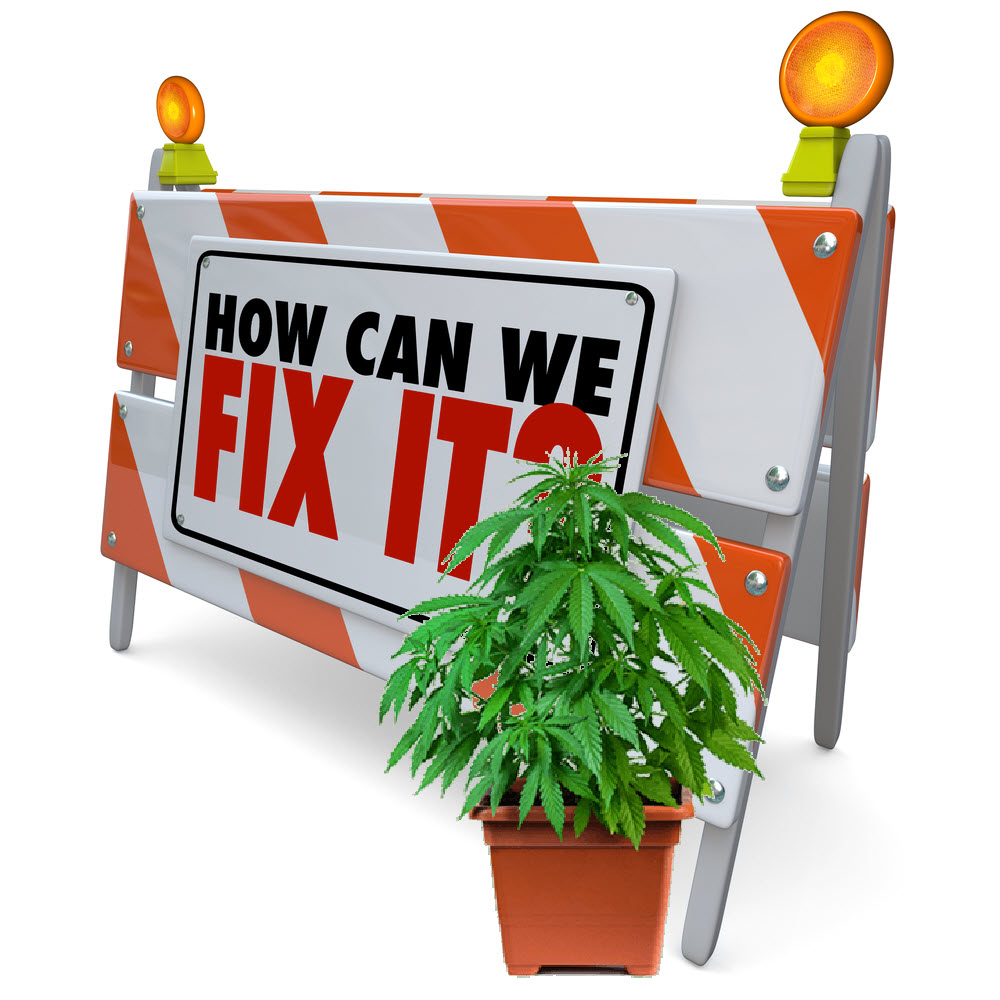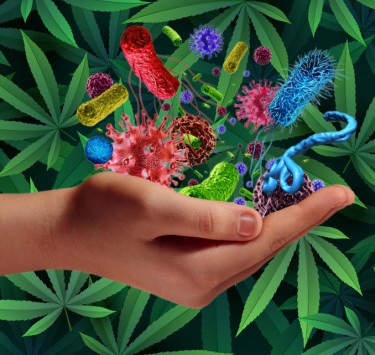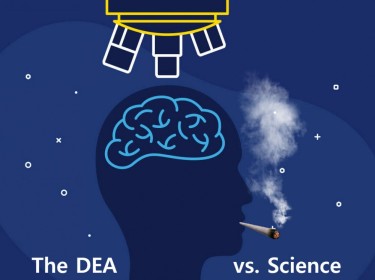Cannabis News
How to Unf**k American Drug Laws
Published
8 months agoon
By
admin

How to Unf**k America!
DISSOLVE THE DEA AND RE-NEGOTIATE DRUG AGREEMENTS WORLDWIDE!
The Drug Enforcement Administration (DEA) has long been a staunch opponent of cannabis legalization, so it comes as no surprise that they’ve rejected the Department of Health and Human Services’ (HHS) recommendation to reschedule cannabis to Schedule III under the Controlled Substances Act. The HHS review found cannabis to have medical value and a lower potential for abuse than currently scheduled.
However, the DEA believes the agency is wrong on this front.
This stance is unsurprising given the DEA’s role as the enforcer of drug laws that has largely criminalized cannabis for decades. Their opposition protects the interests of the powerful pharmaceutical industry which stands to lose billions if cannabis is rescheduled and medical programs expand.
It’s estimated that wherever medical cannabis is legalized, pharma loses roughly $10 billion in annual revenues as patients switch from prescription drugs to medical marijuana.
The DEA’s rejection of rescheduling leaves America at a crossroads. Do we continue allowing an agency with a vested interest in maintaining cannabis prohibition to override scientific evidence on the plant’s medical value? Or do we re-evaluate the necessity of the DEA’s existence altogether?
This antiquated drug war institution has not only perpetuated injustices against cannabis consumers but has also contributed to policies that make illicit substances even more unsafe and available on the black market. By clinging to an ideology focused on criminalization over harm reduction, the DEA’s presence is increasingly antithetical to the ideals of a free society.
As America reckons with the DEA’s hardline position, it’s worth examining whether disbanding the agency entirely and renegotiating international drug policies could be the first step in “unf**king” the nation’s catastrophic war on drugs. This article aims to showcase these reform ideas and a path forward.
While anonymous sources cited in the Wall Street Journal report claim there is tension between certain DEA officials and the White House over marijuana’s scheduling status, the agency itself has not taken an official public position on the matter.
The DEA has only stated that it is currently carrying out its scientific and medical evaluation of cannabis as required by law after receiving a scheduling recommendation from the U.S. Department of Health and Human Services (HHS).
HHS conducted its own assessment and advised moving marijuana from its current restrictive Schedule I status to the less prohibitive Schedule III under the Controlled Substances Act.
In testimony before Congress last year, DEA Administrator Anne Milgram said the agency would “keep an open mind” and “look at all the research” during its review process. This suggests the DEA has not pre-judged the outcome and is withholding any scheduling decision until it has thoroughly examined the evidence.
Importantly, the DEA has stressed that as the agency tasked with enforcing the Controlled Substances Act, it maintains final authority over determining cannabis’ proper scheduling – not HHS. While the Congressional Research Service stated it is “likely” DEA will accept HHS’ Schedule III recommendation based on past precedent, the DEA is not legally bound to that advisory opinion.
The purported resistance from some DEA officials cited anonymously aligns with the historical position of the agency and its past administrators who have vigorously defended marijuana’s Schedule I status quo. For example, the quote in the Journal from former DEA head Timothy Shea asserting “the science does not support rescheduling” reflects this entrenched anti-rescheduling mindset.
However, the DEA has made no definitive public statement adopting or rejecting HHS’ scheduling recommendation to date. All the agency has officially communicated is that it is presently conducting “an appropriate review of the science and available data” related to marijuana’s abuse potential, risk to public health, and medical value as required under the Controlled Substances Act.
In fact, Administrator Milgram pointedly declined to even acknowledge if there is any internal dissent when asked about the Journal’s reporting, telling Marijuana Moment: “I’m not going to comment on any internal DEA deliberations.”
Some cannabis reform advocates have expressed skepticism about the motivations behind the anonymously-sourced leaks claiming DEA opposition, especially given the consistent anti-rescheduling history and drug war ethos of the agency. As NORML’s deputy director stated, there’s a presumed faction within DEA that wishes to “cling to their ‘flat Earth’ cannabis policies at all costs” regardless of the evidence.
While this apparent internal wariness about rescheduling aligns with the DEA’s historic stance, the agency’s official public position for now is that it is dutifully carrying out the scheduling review process as required with an open mind. Definitive proof of whether the DEA will accept or reject HHS’ recommendation to reschedule cannabis to Schedule III is still pending completion of its evaluation in the coming months.
The Drug Enforcement Administration’s own mission statement makes clear that the agency’s purpose is to enforce the controlled substances laws and regulations of the United States. However, the DEA has catastrophically failed to achieve those objectives over the past several decades of waging its self-described “war on drugs.”
According to the DEA’s mission statement, the agency is tasked with “bringing to the criminal and civil justice system…organizations involved in the growing, manufacture, or distribution of controlled substances.” Yet despite an increasingly militarized effort and violating civil liberties in the name of this “war,” illicit drugs are more widely available and used today than when the modern Controlled Substances Act was established in 1970.
One key reason the DEA has been losing this war is because the Controlled Substances Act essentially grants a monopoly over the “manufacturing of Schedule I drugs” solely to well-funded pharmaceutical corporations and research institutions. By wrongfully placing cannabis in the most restrictive Schedule I category, the DEA has made it nearly impossible for anyone outside of big pharma to legally research and develop drugs derived from the plant.
This monopolistic blockade goes against stated American principles of facilitating open research, scientific inquiry, and a free market of innovative new medications. Instead, it protects the profit motives of large pharmaceutical companies by eliminating potential competition from cannabis-derived drugs and therapies.
Despite an overwhelming body of scientific evidence showing cannabis’ relative safety and potential medical benefits, the DEA stubbornly clings to antiquated dogmas labeling it a dangerous substance “with no currently accepted medical use.” This ideological inflexibility seems motivated more by a desire for the DEA’s own bureaucratic relevance than upholding facts, ethics or American principles.
After over 50 years and over $1 trillion spent enforcing draconian drug laws, it’s clear that the DEA’s militarized “war” has been an extraordinarily costly and tragic failure in terms of public health, civil liberties and human rights. Not only has prohibition caused a crisis of overincarceration, but it has also empowered violent criminal cartels while failing to reduce drug availability or use.
In the 1970s when the modern war on drugs was launched, around 25 million Americans had used illicit drugs. Today, after a trillion dollars spent on DEA enforcement efforts, over 119 million Americans have used prohibited substances according to federal data. Rather than reducing availability and use, drugs are unquestionably more prevalent across all demographics than before the DEA’s creation.
Not only has the DEA’s drug war failed to reduce drug use, but it has enriched and further empowered the highly organized, well-resourced, and increasingly ruthless criminal cartels that control the lucrative illegal drug trade. Before the harsh prohibitions, drug operations were unrefined and largely limited to small crime rings. But cartels grew into the multinational billion-dollar enterprises they are today precisely because of the high-risk, high-reward economics created by blanket criminalization.
Essentially, the DEA’s drug enforcement policies turbocharged the profitable international drug trade into a full-blown cartel-controlled battlefield with thousands of lives lost in drug-related violence every year. In many regions, murderous cartels exert more control than governments due to the lawlessness and fortunes enabled by harsh prohibition.
Simply put, the DEA has undeniably lost its militarized crusade to extinguish drug use and suppress drug supply through harsh criminalization. It is clear that continued prohibition and DEA enforcement actually makes drugs more available, more potent, more adulterated with dangerous additives, and more consolidated under the control of bloodthirsty criminal enterprises.
Since the DEA has manifestly failed in its purported core mission after a half-century of trying the same unsuccessful strong-arm tactics, it’s time for America to radically renegotiate its relationship with drugs and drug policy. Clinging to this quixotic, destructive “war on drugs” only perpetuates injustice, enriches murderous criminals, erodes civil liberties, inhibits research into potential cures, and debases America’s founding ideals.
The first step in renegotiating this relationship is ending the DEA’s fundamentally flawed, uniquely American strain of blanket drug criminalization that gifted cartels their very power and riches. Only then can the nation reclaim its principles and pragmatically regulate drugs in a manner that improves public health and safety.
The inescapable reality is that the DEA’s prohibitionist policies have utterly failed to curb drug use, availability or the power of violent criminal cartels. In fact, the evidence shows their harsh crackdown tactics have made the drug supply more dangerous and emboldened criminality. This raises the uncomfortable but imperative question – is the DEA itself more detrimental to America’s overall health and wellness than the drugs it futilely aims to eliminate?
By decentralizing drug policy away from the DEA’s one-size-fits-all criminalization model, America can open the door to responsibly exploring therapeutic psychotropics like psilocybin and LSD. These could provide psychiatric breakthroughs, yet their potential remains bottlenecked by the DEA’s restrictive drug scheduling system which fuels a cruel cycle of patient suffering.
Disbanding the DEA does not mean descending into some Mad Max drug apocalypse fantasy peddled by drug warriors. Rather, it simply unlocks the gates restraining scientific inquiry into these substances’ medicinal wisdom for the betterment of society.
Moreover, America cannot continue moralizing about illicit drugs being universally “bad” while simultaneously celebrating mind-altering drugs like alcohol that are scientifically more toxic and lethal than cannabis. This blatant hypocrisy and muddled messaging undermines credibility. Alcohol objectively fits the profile of a Schedule I narcotic far more than marijuana, yet it’s aggressively marketed during events like the Super Bowl while the DEA places its watchful eye on those seeking alternative paths outside the mainstream river of pharmaceutical junk.
For those adamant about “unfucking America,” one of the most imperative first steps is dismantling the DEA power structure and reclaiming individual bodily autonomy from the state’s draconian prohibition regime. America’s founders envisioned a society of personal freedoms, not one where federal foot soldiers infringe on liberties under the prejudiced guise of keeping “dangerous” plants from citizens who wish to consciously explore their own consciousness.
THE DEA ON CANNABIS, READ ON…
You may like
-


The Latest in DEA Shenanigans? The Federal Agency Punts Marijuana Hearings into 2025
-


Dutch police find gnome made of MDMA during drug bust
-


Rejected applicants sue Minnesota over marijuana social equity licensing process
-


4 Ways Marijuana Can Help You Have A Better Thanksgiving
-


Can Big Alcohol Help The Cannabis Industry
-


California Appeals Court Rejects Marijuana Grow Permit, Citing Federal Illegality
Cannabis News
The Latest in DEA Shenanigans? The Federal Agency Punts Marijuana Hearings into 2025
Published
7 minutes agoon
November 23, 2024By
admin

For the past few months, cannabis advocates have been perched on the edges of their seats like cats watching a laser pointer, following every twist and turn of the great rescheduling saga. Ever since President Biden sparked this joint of hope, suggesting that cannabis could be moved from Schedule I to Schedule III, we’ve been waiting to see if the DEA would finally admit what we’ve known all along – that cannabis isn’t as dangerous as heroin.
But just as we thought we might get some clarity before the 2024 election circus kicks into high gear, the DEA pulled what I like to call a “classic prohibitionist move.” A judge recently announced that the hearings won’t happen until 2025, leaving advocates frustrated and industry players wondering if this is just another delay tactic in the long game of “hurry up and wait” that we’ve become all too familiar with.
Now, I’ve been covering cannabis policy long enough to smell political theater when I see it, and this latest development has got my skepticism sensors tingling. While some view rescheduling as a step forward, others (myself included) have questioned whether Schedule III is just Big Pharma’s backup plan – a way to maintain control while appearing progressive.
In this article, we’re going to dive deep into why the DEA is dragging its feet, what this delay really means for the cannabis industry, and why true reform might need to come from the halls of Congress rather than the offices of federal agencies. Buckle up, folks – we’re about to get real about the future of cannabis reform in America.
Just when we thought the DEA might finally be ready to have an adult conversation about cannabis, they’ve pulled another classic move from the prohibitionist playbook. Administrative Law Judge Teresa Wallbaum recently announced that the hearing on cannabis rescheduling will be pushed to January 2025, citing the need for “additional time to prepare for this complex proceeding.”
Let’s be real here – this delay isn’t about preparation. It’s about waiting to see who they’ll be working with after the election. And given Trump’s recent victory, coupled with his surprisingly progressive stance on cannabis reform, the landscape is about to get interesting. Unlike the Biden administration’s tepid approach to reform, Trump has voiced support for both rescheduling and broader cannabis reforms. However, he’s also a wild card and could do absolutely nothing. It’s still too early to tell.
But here’s where I’m going to ruffle some feathers – this whole rescheduling circus might just be political theater. Think about it: the Biden administration had four years to implement meaningful cannabis reform. What did we get? A lot of promises, some nice-sounding rhetoric about rescheduling, and precisely zero actual changes. It’s the kind of empty promises we’ve come to expect from career politicians trying to maintain their grip on power while appearing “progressive.”
The American people aren’t stupid. They saw through this charade, which partly explains why they voted for Trump. Say what you will about the man, he is a big disruptor and there are more moderate voices on his team this time around. We’ll have to see who else he picks and hope that some lobbyist doesn’t sneak in there – they probably will – but we’ll have to see.
According to court documents, the delay is necessary because “the parties need additional time to identify and prepare expert witnesses, and to review the extensive documentary evidence that will be presented at the hearing.” But let’s call this what it is – bureaucratic tap dancing. The DEA is waiting to see which way the political winds blow before making any significant moves.
Here’s where I might surprise you – this delay might actually be a blessing in disguise for cannabis advocates. Why? Because Schedule III was never the answer we were looking for anyway. As I’ve written before, rescheduling to Schedule III is essentially Big Pharma’s backup plan, a way to maintain control over cannabis while appearing to support reform.
My gut tells me – and my gut’s been right more often than not in this industry – that real cannabis reform isn’t going to come through rescheduling. It’s going to come through Congress, and potentially with support from the incoming administration. The people have spoken loudly: they want real reform, not more empty promises and half-measures.
The writing’s on the wall, folks. The old guard’s strategy of dangling the rescheduling carrot while maintaining the status quo isn’t working anymore. Whether through Trump’s promised reforms or congressional action, change is coming. And maybe, just maybe, this DEA delay is the death rattle of the rescheduling red herring we never needed in the first place.
You know, I used to be that guy. The one who’d confidently declare, “Within five years, cannabis will be legal nationwide!” I’d break down the trends, cite the polling data, and explain why legalization was inevitable. And you know what? I kept being wrong. Not about the direction – cannabis reform has steadily marched forward – but about the timeline and the path it would take.
Looking back, I nailed quite a few predictions. I saw the CBD boom coming, correctly anticipated the rise of Delta-8 THC in prohibition states, and forecasted the eventual corporate takeover of many pioneer cannabis markets. But these days? Making predictions about cannabis reform feels about as reliable as using a Magic 8-Ball to plan your retirement.
The political landscape has become more unpredictable than a first-timer’s reaction to a high-THC edible. We’ve got Trump back in office – a man who, despite his previous opposition to cannabis, has recently shown support for reform. Could he shock us all and push through a simple, straightforward legalization plan just to stick it to the establishment? It’s entirely possible. Could he also do absolutely nothing and let the status quo reign? Equally possible.
And that’s just one variable in an increasingly complex equation. We’ve got Big Pharma pulling strings behind the scenes, state markets evolving at different rates, and banking reform perpetually stuck in congressional limbo. Not to mention the international scene, where some countries are embracing legalization while others double down on prohibition.
Here’s what I do know: Schedule III, even if it happens, isn’t the endgame. It’s like trying to fix a broken leg with a Band-Aid – it might look like you’re doing something, but it doesn’t address the underlying problem. The moment it passes (if it passes), it’ll be tied up in legal challenges faster than you can say “interstate commerce.” Why? Because without congressional action, we’re still stuck in this weird legal twilight zone where state and federal laws contradict each other.
So I’ve stopped making predictions about when or how cannabis reform will happen. Instead, I focus on analyzing the facts in front of us and calling out the bullshit when I see it. Because at the end of the day, that’s more valuable than crystal ball gazing.
The only thing I’m certain about is that change is coming. Whether it’s through congressional action, executive orders, or some yet-unknown path, cannabis prohibition will end. I just won’t tell you when anymore. I’ve learned my lesson about making promises I can’t keep – unlike some politicians I could name.
INSPIRATION: https://www.marijuanamoment.net/dea-marijuana-
rescheduling-hearing-delayed-until-2025-agency-judge-rules/
THE DEA DELAYS AGAIN, READ MORE…
THE DEA IS NOT TELLING THE TRUTH ON CANNABIS SCHEDULES!
Cannabis News
California Appeals Court Rejects Marijuana Grow Permit, Citing Federal Illegality
Published
22 hours agoon
November 22, 2024By
admin
In a landmark decision that highlights the tension between state and federal cannabis laws, a California appellate court ruled on October 29th that property owners can refuse to allow the transportation of cannabis across their land via easements, even when the cannabis operation is approved by local authorities.
The Second District Court of Appeal’s unanimous decision draws attention to private property rights in a context where cannabis remains federally illegal, but state law allows licensed cultivation, distribution and sale. Presiding Justice Albert Gilbert stated, “No matter how much California voters and the Legislature might try, cannabis cultivation and transportation are illegal in California as long as it remains illegal under federal law.” JCCrandall LLC v. County of Santa Barbara, Case No. B333201, 2024 WL 4599304, Oct. 29, 2024.
Unless the California Supreme Court grants review – which I would not rule out – the decision empowers private property owners to refuse to contract with cannabis businesses, and restricts local government from approving cannabis operations that implicate the property rights of neighbors who object.
The case at hand
The dispute centered around a cannabis cultivation operation in Santa Barbara County, where JCCrandall LLC challenged a conditional use permit granted by the County to its neighbor, Santa Rita Holdings Inc. The critical issue was that Santa Rita Holdings could only access its 2.5-acre cannabis farm via an unpaved road crossing JCCrandall’s property through a pre-existing easement. JCCrandall grows oats and barley.
JCCrandall’s primary concern? It raised a number of complaints with the Santa Barbara County Supervisors about truck traffic and night operations, which did not gain traction, but in the Court of Appeal JCCrandall focused on what it claimed was potential liability associated with having federally illegal substances transported across its property, even though County regulators found that the Santa Rita operation was fully compliant with state and local laws.
Key legal findings
The appellate court’s decision hinged on several crucial points:
- Property Rights: The court emphasized that “the right to exclude others is the essence of the right of property ownership” and classified it as a fundamental vested right.
- Federal Supremacy: The panel determined that allowing cannabis transportation across private property “defies the Supremacy Clause” of the U.S. Constitution.
- State vs. Federal Law: While cannabis might be legal under California law, the court ruled that federal law’s prohibition takes precedence in this context.
California cannabis industry implications
Legal experts suggest this ruling could have far-reaching consequences for California’s cannabis industry. Section 1550.5(b) of the California Civil Code makes contracts within California involving cannabis lawful and enforceable, and Santa Rita Holdings bet the ranch on that argument. But the Court of Appeal held that the statute could not compel a landowner to allow cannabis to travel across its property on a pre-existing easement. Licensed operators may find it harder to do business because neighbors who have property rights affected by a cannabis business can object, and, under the JCCrandall ruling, local government must yield to those objections.
An example might be a cannabis dispensary that depends on access to its parking lot via an easement or is located in a shopping center where other lessees have rights to object to tenants notwithstanding the approval of the landlord. In cultivation, many cannabis farms depend on vehicular access through easements because they are remote and do not always have direct access to public thoroughfares, or they depend on water sourced from other properties pursuant to agreements made by prior owners who grew traditional crops. These neighbors might not need to show any negative impact on their property, but can argue that they could be found complicit in federally illegal activities.
I think the most problematic language in the JCCrandall ruling is the following, which might draw the attention of the California Supreme Court and cause it to grant review: “For as long as an easement is enjoyed, its mode and manner of use shall remain substantially the same as it was at the time the easement was created. The County argues the easement was used for agricultural purposes. But there is a vast difference between legal and illegal agricultural purposes.” (Emphasis added.) If California has determined that cannabis cultivation is legal – as it has – and state courts routinely enforce contracts involving cannabis, it is a pretty bold step to declare the use of a lawful pre-existing easement illegal simply because the agricultural crop is cannabis and take away easement access from Santa Rita.
Looking ahead
This decision creates new challenges for cannabis businesses in California, and will result in more disputes among neighbors. While the Biden administration has shown signs of easing federal marijuana restrictions, this ruling demonstrates that the federal-state law conflict continues to create significant legal hurdles for the cannabis industry.
California court decisions also can be persuasive authority in other states, so we might see similar litigation (and decisions) elsewhere in the country where cannabis has been legalized.
The case serves as a reminder that despite California’s progressive stance on cannabis, federal prohibition continues to cast a long shadow over the industry’s operations and development. As the cannabis landscape continues to evolve, this ruling may prompt businesses to reassess their property arrangements and local governments will certainly have to reconsider their permitting processes to give more careful consideration to objections by neighbors who claim that their property rights are implicated by cannabis operations.
Note: This post was first published earlier this month on the Alger ADR Blog.
Cannabis News
Autoimmune Conditions Are Rising Fast in American Medicine, Can Cannabis Help?
Published
2 days agoon
November 21, 2024By
admin

Why Are Autoimmune Conditions On The Rise? And How Cannabis Can Help
Autoimmune diseases refer to a group of medical conditions that occur as a result of the immune system attacking your own tissues.
In a normal human body, the immune system is responsible for protecting the body by producing antibodies that prevent toxins, cancer cells, and viruses from harming the body. However, when one is struck by an autoimmune disorder, the immune system is no longer able to distinguish the difference between dangerous cells and healthy cells. As a result, the healthy cells are attacked, too.
Today, we know of around 100 different kinds of autoimmune conditions. Some of the most common examples of autoimmune conditions include rheumatoid arthritis (RA), lupus, inflammatory bowel disease, celiac disease, Type 1 diabetes, multiple sclerosis (MS), and the Guillain-Barre syndrome (GBS) to name a few. Others include Graves’ disease, Hashimoto’s thyroiditis, psoriasis, and vasculitis.
According to the National Health Council, around 50 million Americans are affected by autoimmune diseases today. This is a conservative estimate, considering that several autoimmune conditions are tricky to treat and so many people go undiagnosed for long periods of time. It’s worrisome to note that there are more people developing autoimmune diseases these days, many of which have reached levels comparable to epidemics.
But cannabis can help!
How Cannabis Can Help Curb And Manage Autoimmune Diseases
Not one single cause is responsible for the alarming growth of autoimmune diseases, though there are several factors at play. While there isn’t just one cause we can point at, it’s certain the reasons lie in our environment. After all, human genetics haven’t changed significantly yet the chemicals, toxins, and pollutants in our food and everyday items have risen dramatically.
In addition, people are getting less sleep than ever; stress rates are through the roof, and people are constantly worried. There is a clear link between psychological stress and physical health as well as immunity, which is why it isn’t unusual – it’s even common – to see many autoimmune disease cases flare up after people experience severe stress caused by grief, an accident, job loss, or the death of a loved one. These highly stressful and traumatic conditions wreak havoc on the body’s immune response, causing inflammation all over the body.
Conventional treatments prescribed to treat autoimmune conditions are focused on taming inflammation; these usually include steroids but also some non-steroidal drugs. These drugs often come with unwanted side effects, but research has shown that cannabis can work with the endocannabinoid system through THC and CBD, as well as other cannabinoids, to simulate similar results. In one study for example, we can see the clear association of the endocannabinoid system for neurodegenerative and inflammatory processes seen in Multiple Sclerosis and Amyotrophic Lateral Sclerosis.
There has also been an increasing number of studies proving the efficacy of cannabis for treating several autoimmune conditions.
Cannabis For Multiple Sclerosis
Multiple sclerosis is one of the autoimmune conditions where a growing number of studies have come out supporting the therapeutic benefits of cannabis for. In a 2024 study, patients with multiple sclerosis reported several improvements in quality of life after using cannabis-based medical products (CBMPs). For the study, British investigators analyzed the impact of cannabis based medicinal products made from either oil or extracts in 141 patients who were enrolled in the UK Medical Cannabis Registry.
The researchers then analyzed the changes in patient outcomes after a month, then three and 6 months after. According to the patients themselves, they were able to sustain improvements in their mental and physical health after marijuana therapy.
“This case series demonstrates a potential association between the initiation of CBMPs and improved patient reported outcomes in sleep, anxiety, and general HRQoL [health-related quality of life] measures, over six months,” said the study authors. “Additional measures for HRQoL, including various physical and mental health subdomains, also exhibit improvements up to six months when compared to baseline,” the authors concluded.
In another study from 2023, patients with multiple sclerosis reported significant improvements in symptoms after cannabis use. For the study, researchers from the Dent Neurologic Institute in Buffalo, New York, analyzed the medical records of 141 patients with multiple sclerosis, who were also legally authorized to consume medical marijuana products. They then analyzed data from the patients after one up to 4 follow-up sessions after the initial session of cannabis therapy. Sixty-five percent of patients consumed 1:1 THC:CBD tinctures.
According to the authors: “The results of this study indicate that use of MC [medical cannabis] to alleviate symptoms of MS is largely efficacious, with improvement in pain (72 percent of patients), muscle spasticity (48 percent of patients), and sleep disturbance (40 percent of patients) frequently reported.”
“More than half of opioid users at baseline were able to either discontinue or decrease their opioid use after starting MC. The mean daily MME [morphine milligram equivalents] was significantly reduced from the initial visit (51 mg) to the last follow-up visit (40 mg). This is consistent with previous literature showing that MC legalization is associated with decreased opioid use and that MC use is associated with decreased opioid use in patients with chronic pain. These findings indicate that MC may represent an alternative analgesic to opioids for some patients,” they wrote.
Anecdotal Evidence
While more studies are needed to determine cannabis’ effect on other autoimmune conditions such as rheumatoid arthritis, we can rely on anecdotal evidence. In 2020, data from the medical journal, Rheumatology, revealed that patients who have this condition, along with those who have lupus and fibromyalgia, consume cannabis.
In fact, it was reported that marijuana was extremely common especially for patients with fibromyalgia. “In this meta-analysis, we found that one in six patients suffering from rheumatologic disease actively consumes cannabis, reducing pain reduction… A favorable effect of cannabis on pain in our meta-analysis reinforces the idea that cannabis could be used for analgesic purposes,” the authors concluded.
Conclusion
Cannabis is a safe and natural way to help prevent and treat the symptoms of autoimmune disease. It targets inflammation at its root, and is a proven natural way to help cope with stress, pain, insomnia, and inflammation all while protecting the brain. However, it’s important to ensure you medicate with clean, organic sources of marijuana.
AUTOIMMUNE AND CANNABIS, READ ON…

The Latest in DEA Shenanigans? The Federal Agency Punts Marijuana Hearings into 2025

Dutch police find gnome made of MDMA during drug bust

Rejected applicants sue Minnesota over marijuana social equity licensing process

4 Ways Marijuana Can Help You Have A Better Thanksgiving

Can Big Alcohol Help The Cannabis Industry

California Appeals Court Rejects Marijuana Grow Permit, Citing Federal Illegality

Expert Lighting Tips For Successful Indoor Growing Weed

Acne And CBD: Exploring Alternative Dermatological Solutions

Can I Gift Marijuana This Holiday Season?

The Best Cocktails For An Easy Festive Thanksgiving

Distressed Cannabis Business Takeaways – Canna Law Blog™

United States: Alex Malyshev And Melinda Fellner Discuss The Intersection Of Tax And Cannabis In New Video Series – Part VI: Licensing (Video)

What you Need to Know

Drug Testing for Marijuana – The Joint Blog

NCIA Write About Their Equity Scholarship Program

It has been a wild news week – here’s how CBD and weed can help you relax

Cannabis, alcohol firm SNDL loses CA$372.4 million in 2022

A new April 20 cannabis contest includes a $40,000 purse

Your Go-To Source for Cannabis Logos and Designs

UArizona launches online cannabis compliance online course
Trending
-

 Cannabis News2 years ago
Cannabis News2 years agoDistressed Cannabis Business Takeaways – Canna Law Blog™
-

 One-Hit Wonders2 years ago
One-Hit Wonders2 years agoUnited States: Alex Malyshev And Melinda Fellner Discuss The Intersection Of Tax And Cannabis In New Video Series – Part VI: Licensing (Video)
-

 Cannabis 1012 years ago
Cannabis 1012 years agoWhat you Need to Know
-

 drug testing11 months ago
drug testing11 months agoDrug Testing for Marijuana – The Joint Blog
-

 Education2 years ago
Education2 years agoNCIA Write About Their Equity Scholarship Program
-

 Cannabis2 years ago
Cannabis2 years agoIt has been a wild news week – here’s how CBD and weed can help you relax
-

 Marijuana Business Daily2 years ago
Marijuana Business Daily2 years agoCannabis, alcohol firm SNDL loses CA$372.4 million in 2022
-

 California2 years ago
California2 years agoA new April 20 cannabis contest includes a $40,000 purse






